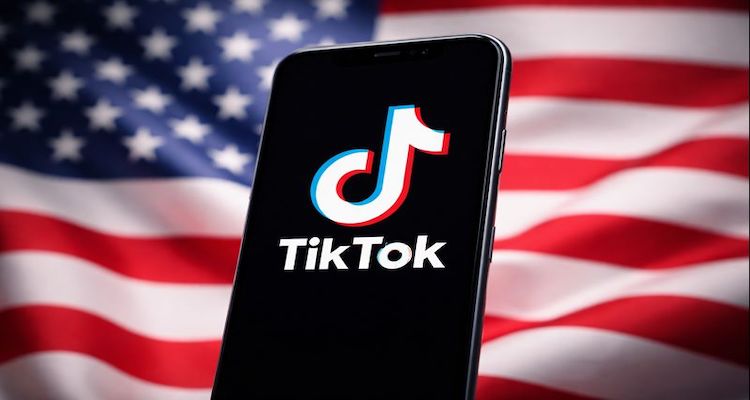Discover the hidden data broker industry

Discover the hidden data broker industry: invisible corporations like Acxiom and Epsilon that collect, process, and sell personal information on billions of people worldwides.
Introduction
Every click, swipe, and digital breath you take generates data worth more than oil in today’s economy. Yet behind the familiar names of Google, Facebook, and Amazon lies a shadowy ecosystem of data brokers and intermediary companies that most people have never heard of—despite these entities knowing intimate details about billions of lives. These invisible corporations operate in the background, collecting, processing, and selling personal information on an unprecedented scale, creating a multi-billion dollar industry built on digital surveillance.
The Hidden Data Economy
Who Are These Data Giants?
While consumers recognize tech behemoths like Meta and Google, the most prolific data collectors operate largely in obscurity. Companies like Acxiom, Epsilon, and LexisNexis Risk Solutions have built vast databases containing detailed profiles on nearly every American adult. These firms don’t sell products directly to consumers—instead, they traffic in human behavior, preferences, and predictions.
Acxiom, often called the “mother of all data brokers,” maintains files on over 2.5 billion people globally. The company claims to process more than 50 trillion data transactions annually, creating detailed consumer profiles that include everything from shopping habits to health conditions.
Epsilon manages loyalty programs for major retailers while simultaneously harvesting customer data across industries. The company processes over 400 billion consumer transactions yearly, building comprehensive behavioral maps that extend far beyond simple purchase history.
The Data Collection Web
These invisible corporations employ sophisticated methods to gather information:
Public Records Mining: Companies systematically collect court records, property deeds, voter registrations, and business filings to build foundational profiles.
Digital Tracking: Through partnerships with websites, mobile apps, and advertising networks, data brokers capture browsing behavior, location data, and device information across millions of digital touchpoints.
Purchase History Aggregation: By partnering with retailers, credit card companies, and financial institutions, these firms compile detailed spending patterns and lifestyle indicators.
Social Media Harvesting: Advanced algorithms analyze public social media posts, connections, and interactions to infer personality traits, political affiliations, and future behaviors.
The Business Model of Surveillance
How Data Becomes Profit
The invisible data economy operates on a simple principle: aggregated human behavior predicts future actions, and predictions drive purchasing decisions. Data brokers segment populations into thousands of categories—from “Suburban Splendor” households likely to buy luxury cars to “Urban Survivors” more susceptible to payday loan marketing.
These companies generate revenue through multiple streams:
-
Direct Data Sales: Selling consumer lists and profiles to marketers, insurers, and employers
-
Verification Services: Providing identity confirmation and fraud prevention tools
-
Predictive Analytics: Creating algorithms that forecast consumer behavior for business clients
-
Risk Assessment: Helping financial institutions and insurers evaluate potential customers
The Scale of Operation
The numbers surrounding this industry are staggering. Data broker Experian alone maintains files on more than 1.2 billion individuals and 25 million businesses worldwide. The company processes over 70 billion data transactions monthly, generating annual revenues exceeding $5 billion.
TransUnion, while known for credit reporting, operates extensive consumer marketing databases that extend far beyond financial information. The company’s data repository includes lifestyle preferences, shopping behaviors, and social connections for hundreds of millions of consumers.
Expert Perspectives and Growing Concerns
Privacy Advocates Sound Alarm
Digital rights organizations have raised increasingly urgent warnings about the data broker ecosystem. “These companies have created detailed dossiers on virtually every American, yet most people don’t even know they exist,” explains Marc Rotenberg, former director of the Electronic Privacy Information Center.
Privacy researcher Dr. Shoshana Zuboff, author of “The Age of Surveillance Capitalism,” describes this phenomenon as “extraction without consent.” She argues that data brokers have fundamentally altered the relationship between individuals and their personal information, creating what she terms “behavioral futures markets.”
Regulatory Response and Industry Pushback
Recent legislative efforts have attempted to address data broker practices. The California Consumer Privacy Act (CCPA) and Virginia Consumer Data Protection Act require certain disclosures and provide deletion rights, but enforcement remains challenging.
Industry representatives argue that data collection serves legitimate business purposes and consumer benefits. Rachel Thomas, spokesperson for the Data & Marketing Association, contends that “responsible data use enables personalized services, fraud prevention, and economic efficiency that ultimately benefits consumers.”
However, critics point out that the “benefits” argument often masks the lack of meaningful choice and transparency in data collection practices.
Real-World Impact and Implications
Beyond Marketing: Life-Changing Consequences
The influence of invisible data corporations extends far beyond targeted advertising. These companies’ profiles increasingly affect:
Employment Opportunities: Employers use data broker services to screen potential hires, potentially excluding candidates based on algorithmic assessments of social media activity, spending patterns, or demographic correlations.
Insurance Premiums: Health and auto insurers leverage data broker information to adjust rates, sometimes using proxy data like shopping behavior or social connections to make coverage decisions.
Housing Access: Landlords and property managers utilize tenant screening services that incorporate data broker profiles, potentially limiting housing opportunities based on algorithmic risk assessments.
Financial Services: Banks and lenders rely on data broker information to make credit decisions, creating potential barriers for individuals whose data profiles suggest higher risk—regardless of actual financial capacity.
The Accuracy Problem
A significant concern involves data quality and correction mechanisms. Unlike credit reports, which have established dispute processes, data broker profiles often contain errors with no clear path for correction. The Federal Trade Commission has documented cases where inaccurate data broker information led to denied employment, increased insurance costs, and other material harms.
Global Expansion and Future Trajectory
International Data Markets
The data broker model is rapidly expanding globally. European companies like Axel Springer and Bertelsmann have developed sophisticated data operations, while Asian markets see growing activity from firms like Tencent and Ant Group.
This international expansion creates complex jurisdictional challenges, as data collected in one country may be processed and sold in regions with different privacy protections.
Emerging Technologies and Enhanced Surveillance
Artificial intelligence and machine learning capabilities are dramatically expanding data broker capabilities. Companies now use:
-
Facial Recognition Integration: Linking physical appearances to digital profiles
-
Voice Pattern Analysis: Identifying individuals through speech characteristics
-
Predictive Health Modeling: Inferring medical conditions from behavioral data
-
Social Network Mapping: Creating detailed relationship webs across platforms
The Path Forward: Regulation and Reform
Legislative Momentum
Growing awareness of data broker practices has sparked legislative action across multiple jurisdictions. The European Union’s Digital Services Act includes provisions targeting data broker transparency, while several U.S. states are considering comprehensive data broker registration requirements.
Senator Ron Wyden has proposed federal legislation requiring data brokers to provide detailed disclosures about their collection practices and allow consumers to access and delete their information.
Industry Self-Regulation Efforts
Some data broker companies have begun voluntary transparency initiatives. Acxiom launched a consumer portal allowing individuals to view and modify their profiles, while Epsilon has implemented enhanced data security measures following high-profile breaches.
However, privacy advocates argue that self-regulation is insufficient given the scale and complexity of modern data collection practices.
Conclusion
The invisible corporations that own the world’s data represent one of the most significant—yet underappreciated—forces shaping modern life. These companies have constructed a parallel economy built on human behavior, creating detailed profiles that influence everything from the advertisements we see to the jobs we can obtain.
As awareness grows about the extent of data broker operations, society faces crucial decisions about privacy, consent, and corporate power in the digital age. The choices made in the coming years will determine whether personal data remains a resource to be extracted without meaningful consent, or whether individuals regain control over their digital identities.
The data broker industry’s invisibility has been its greatest asset—operating in shadows while harvesting unprecedented insights into human behavior. But as transparency requirements increase and public awareness grows, these once-invisible corporations may finally face the scrutiny their influence demands.
The question is no longer whether regulation will come, but whether it will arrive soon enough to restore balance between corporate surveillance and individual privacy in our increasingly connected world.
Disclaimer: This article provides educational information about data collection practices and privacy concerns. Readers should research specific companies and regulations in their jurisdiction. The author is not affiliated with any data broker companies mentioned.










